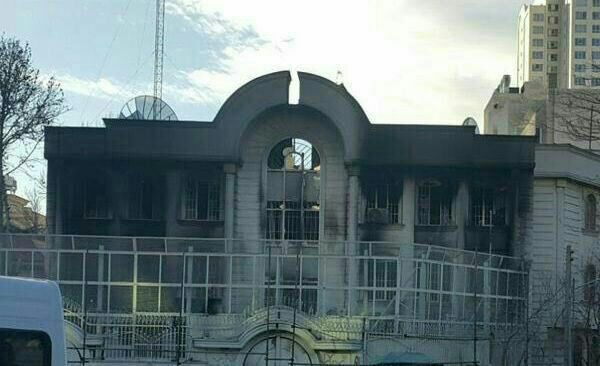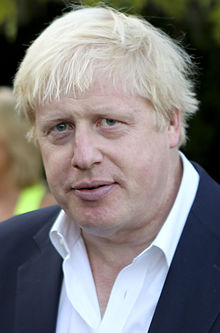July 22, 2016

The Islamic Republic Monday put 21 people on trial for attacking and burning the Saudi embassy in Tehran January 3.
These are the first people ever to go on trial for attacking any embassy in Tehran, and appears to signal an effort by the regime to put a halt to such periodic attacks.
In addition to the famous seizure of the US embassy in 1979, mobs have attacked the Kuwaiti embassy in 1997, the Saudi embassy in 1988, the Danish embassy in 2006, the British embassy in 2011 and the Saudi embassy again this year. Ransacking embassies has, in other words, become something of a rite of passage for young revolutionaries.
The regime has at most lightly criticized the previous attacks. It has never filed criminal charges against any of the mob members before now.
In January, the police announced the arrests of more than 100 people for invading the Saudi embassy and setting it ablaze. In April, the Judiciary said 48 people, including four clerics, would be tried for either planning or participating in the attack.
The Fars news agency said those in court Monday were accused of “disturbing the public order and damaging diplomatic property.”
The Tasnim news agency said 21 of the 48 charged were on trial Monday. It didn’t say what has happened to the other 27. However, the court hearing the cases of the 21 is the Special Court for Government Employees, suggesting that the other 27 are not government employees.
At Monday’s hearing, a 25-year-old defendant said he had learned of the protest from social media groups “said to be linked to the Pasdaran,” according to the Iranian Students News Agency (ISNA).
After the attack, some Pasdar commanders condemned it as a plot against Iran and suggested “foreign agents” had been behind it.
“I didn’t know the protest did not have a permit…. I am regretful as I broke the heart of the Supreme Leader,” ISNA quoted the unnamed defendant as saying.
Khamenehi has said the attack was “very bad and wrong” and had “damaged the country and Islam.” He hasn’t said that about any previous embassy attacks.
A defense lawyer said two of his clients were absent from court as they were fighting in Syria against the rebels there.
Another defendant testified that he had been on an errand to a pharmacy, but was arrested by security forces when he stopped his car to watch as protesters set fire to the embassy building.
Some of the defendants said they had gathered in front of the embassy to protest against the “Saudi crimes in the Yemen war,” but insisted they had not thrown stones or entered the building.
One said he entered the embassy to help people who were caught in the fire.
Except for Denmark, the other countries whose embassies were attacked severed relations with Iran over its response—or lack of response—to the attacks. Canada severed relations a few years ago saying it was concerned about a possible attack and danger to its diplomats and staff.
In January, the Saudi consulate in Mashhad was overrun the same evening the embassy in Tehran was attacked.
The Rohani Administration immediately condemned the attacks and asked the Judiciary to punish the attackers. Remarkably, the Judiciary appears to be responding positively to the Rohani request, although it remains to be seen what the court will do in the end.



















